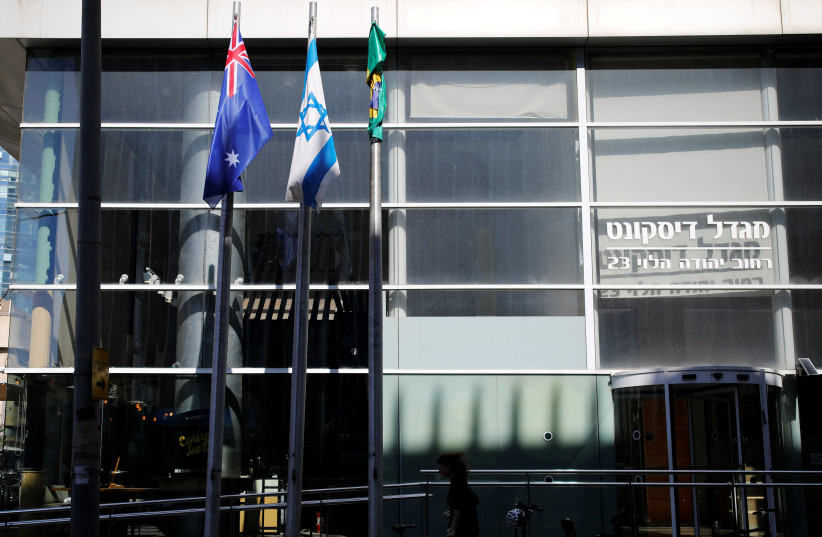In a clumsy act of weak-kneed diplomacy, Australia on Tuesday announced that it was withdrawing former prime minister Scott Morrison’s 2018 decision to recognize west Jerusalem as Israel’s capital.
Interestingly, the reaction in Jerusalem when Morrison announced that move four years ago was underwhelming. The Prime Minister’s Office did not immediately issue a statement praising it, and the Foreign Ministry only tepidly welcomed it, saying it was a “step in the right direction.”
Why such a mild response?
Because a year after the US recognized Jerusalem as Israel’s capital and announced it would move its embassy there, the Australians acted not with the conviction of the Americans, but rather with the reluctance of the Russians. The Russians, six months before the US announcement, issued a statement saying “we view west Jerusalem” as Israel’s capital.
The Australians chose the Russian model, not the American one, which explains Jerusalem’s less-than-enthusiastic response at the time. But now, even recognizing only “west Jerusalem” – and by doing so effectively acknowledging the future division of the city – is proving too much for the government of Anthony Albanese and his Labour Party.
How ironic it is that the Russians, whose relationship with Israel is now being strained by the war in Ukraine, have not reversed their Jerusalem move, while Australia, considered among Israel’s best friends in the world, has done just that.

And what have the Australians done by this reversal? They have said that west Jerusalem, which has been the country’s capital since 1948, is up for negotiations. In announcing the move, Foreign Minister Penny Wong said, “Jerusalem is the final-status issue that should be resolved as part of any peace agreement.”
Huh? The status of west Jerusalem needs to be resolved in negotiations?
If west Jerusalem is not sovereign Israel, does this mean that Canberra believes that the city should, as stipulated by the 1947 partition plan, eventually be a corpus separatum under a permanent international regime? Western Jerusalem, as Australia and the rest of the world fully know, will always remain a part of Israel, and no serious peace proposal has ever suggested otherwise.
The move was hailed by the Palestinian Authority. Of course it was, since it reinforces the rejectionist tendency amid the Palestinians and strengthens their destructive illusion that if they just wait long enough, and pressure hard enough, they will have their demands met with no concessions needed on their part.
What exactly has the PA done of late to merit such an Australian prize? Should the PA be rewarded for having its prime minister Mohammed Shtayyeh fan the flames of violence by going to Jenin – as he did on Sunday – to praise Palestinian “martyrs”?
Then there was the way the decision was taken. On Monday, The Guardian newspaper reported that Canberra’s recognition of west Jerusalem was deleted from the Australian foreign ministry’s website. The foreign ministry issued a flat denial that there was a change of policy, yet a few hours later reversed itself and announced exactly that change of policy.
Prime Minister Yair Lapid was spot on when he said, “In light of the way in which this decision was made in Australia, as a hasty response to an incorrect report in the media, we can only hope that the Australian government manages other matters more seriously and professionally.”
For Israel, there are a couple of important takeaways from the whole episode
First, Jerusalem should prepare for the possibility that Australia might recognize a Palestinian state. If this sounds far-fetched, consider the following: Three years ago, the Australian Labour Party called for a walk back of Morrison’s Jerusalem decision as well as for the next Labour government to recognize “Palestine” as a state. If the party followed through on one of those pledges, why think they may not do the same on the other?
Secondly, Canberra’s flip-flop should lead to a greater appreciation in Jerusalem of US president Joe Biden’s decision to not act like the Australians and reverse his predecessor’s decision to move the embassy, even though Biden himself was opposed to the Jerusalem embassy move. Biden did something that Albanese in Australia was unable to do: Stand up to a minority voice in his party pushing an anti-Israel agenda that can only weaken ties with Israel.
